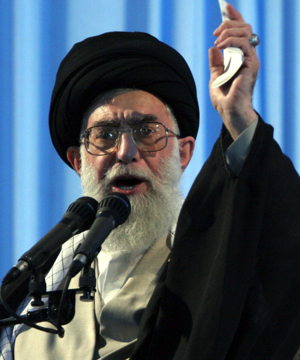As tensions between Iran and Israel escalate, reports suggest Iran's Supreme Leader, Ayatollah Ali Khamenei, is in poor health. According to The New York Times, the 85-year-old Khamenei is suffering from a severe illness, which has sparked discussions on his possible successor. His second-oldest son, Mojtaba Khamenei, is considered the likely candidate to take over his father's role.

The question of succession could prove pivotal in shaping Iran's future policies. The Islamic Revolutionary Guards Corps (IRGC), a powerful branch of Iran's military, is expected to play a significant role in determining the next leader. This concern has intensified since the tragic death of Iran's President Ebrahim Raisi in a helicopter crash earlier this year, along with the country's foreign minister. Raisi's passing created further uncertainty about the nation's leadership, fueling speculation and debate over succession.
Iran Poised to Retaliate
Ayatollah Ali Khamenei has held the position of Supreme Leader since 1989, following the death of Iran's previous leader, Ruhollah Khomeini. His health concerns emerged as Israel launched a recent retaliatory "precision strike" on multiple Iranian military sites. Israel's move came after Iran reportedly carried out a missile strike on October 1, targeting Israeli locations. According to Israeli officials, their counterattack aimed to neutralize threats and was strictly directed at military installations.
Despite Israel's actions, Iranian authorities maintain they have no wish to escalate conflict but insist they will respond firmly to any aggression. Reports indicate Israel may have also struck sites in Iraq and Syria, further amplifying tensions in the region.
Khamenei's New Online Presence Stirs Reaction
In an unusual turn of events, Khamenei recently opened an account on the social media platform X (formerly Twitter), posting in Hebrew shortly after the Israeli strikes. His first post, which read, "In the name of Allah, the merciful and compassionate," signaled his intent to communicate directly with an Israeli audience.
This unprecedented move drew widespread attention, with some interpreting it as a message of defiance amid his nation's ongoing conflict with Israel. It marks a significant shift in Khamenei's approach, as he has rarely engaged directly with foreign audiences on social media, particularly in Hebrew.
Biden Hopes for End to Airstrikes
Amid these developments, U.S. President Joe Biden expressed his hope that Israel's recent strikes on Iranian targets would bring an end to the ongoing airstrike exchanges. Speaking to reporters, Biden confirmed that Israeli officials had informed him in advance of the military action and noted that Israel's operations appeared focused solely on military assets. With his term nearing its end, Biden's administration is making renewed efforts to revive the stalled Gaza ceasefire talks, aiming to stabilize the region before he leaves office.
The Biden administration's stance reflects a desire to de-escalate hostilities and return to diplomacy, though the current landscape remains fraught with uncertainties.
As events unfold, the world watches closely. Iran's internal dynamics, particularly regarding Khamenei's health and the country's leadership future, will likely play a crucial role in shaping Iran's actions in the coming weeks and months.









